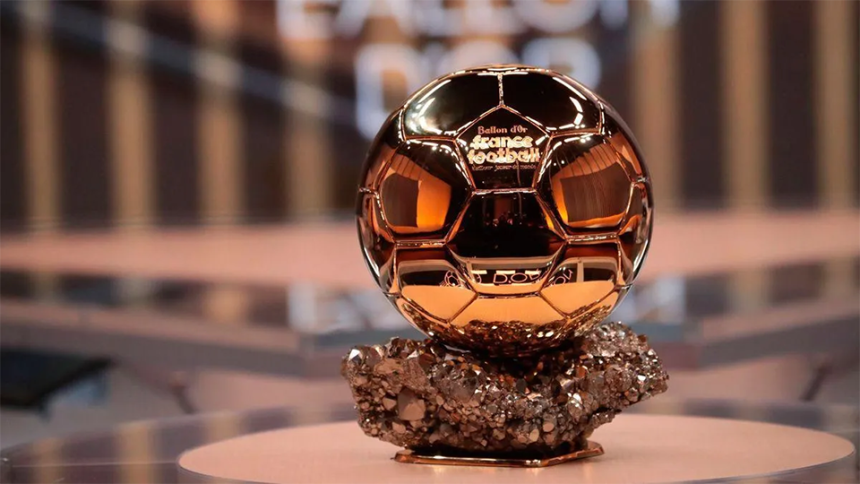Football’s highest badge of honor, the Ballon d’Or, is the kind of prize that distinguishes a player as above the others. The Top Ten Footballers With The Most Ballon d’Or Awards, transports you to the realm of soccer’s most legendary players those exceptional skills that have raised this venerable golden ball more than once. We are discussing athletes who, with their brilliant goals, deft playmaking, or pure tenacity in the most important events have left spectators stunned.
From full stadiums to international events like the World Cup, these performers have given performances still causing shivers. This is a trip through amazing events, heart-stopping moments, and careers that revolutionized what’s feasible on the field, not just a list. You will learn about the games where they turned the tide, the seasons they could not stop, and the traits like pure passion or cool-headed genius that made them champions.
Whether your passion is lifelong or merely love a fantastic sports narrative, this exploration of football’s best has plenty of specifics to keep you interested. It honors the athletes who have shaped the game, meant to inspire readers ravenous for legendary soccer stories.
The Top Ten Footballers With The Most Ballon d’or
10. Karl-Heinz Rummenigge (2 Ballon d’Or Awards: 1980, 1981)
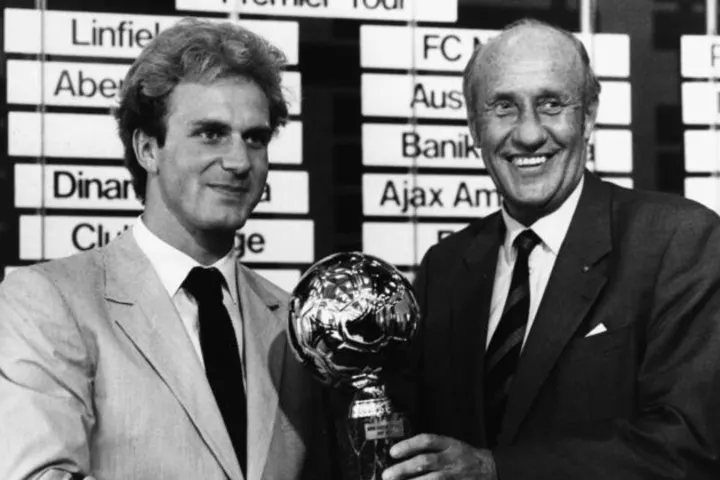
Karl-Heinz Rummenigge was a force of nature, a German forward whose explosive pace and clinical finishing earned him Ballon d’Or titles in 1980 and 1981. Joining Bayern Munich in 1974, he became the heartbeat of their 1970s dynasty, powering them to two European Cups and three Bundesliga titles. His 162 goals in 310 league games showcased a striker who could outrun defenders and bury chances with precision.
In 1980, he captained West Germany to European Championship glory, and his clutch performances in two World Cup finals cemented his reputation. Rummenigge’s versatility—darting down wings or cutting inside—made him a nightmare for opponents. Memorable moments include his hat-trick against Celtic in the 1980 European Cup, a display of raw power. Off the pitch, his later role as Bayern’s chairman shaped their modern dominance, but it’s his on-field magic, from Munich’s roar to international stages, that defines his legacy as one of football’s greatest players.
9. Kevin Keegan (2 Ballon d’Or Awards: 1978, 1979)
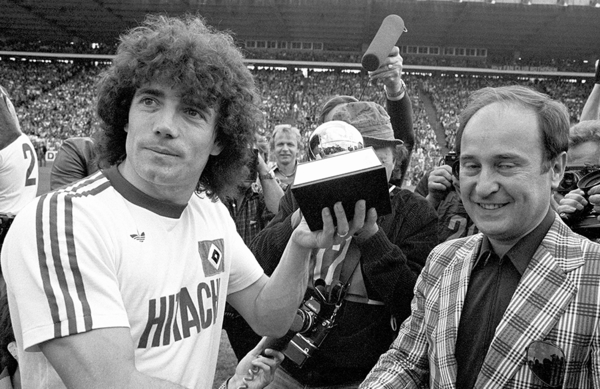
Kevin Keegan, England’s relentless dynamo, clinched back-to-back Ballon d’Or awards in 1978 and 1979, driven by his infectious energy and leadership. Starting at Scunthorpe United, he became a Liverpool legend, scoring 100 goals and winning three First Division titles, two UEFA Cups, and the 1977 European Cup. His 1977 move to Hamburger SV stunned fans, but Keegan delivered, leading them to the 1979 Bundesliga title with 17 goals. His tireless running and knack for big moments, like his brace in the 1977 European Cup semi-final, made him a fan favorite. With 204 career club goals, Keegan’s hustle was unmatched. His fiery spirit later shone as Newcastle’s manager, nearly snatching the Premier League. Keegan’s story is one of heart, from Anfield’s Kop to Hamburg’s cheers, where his relentless drive and clutch goals etched his name among soccer legends, thrilling fans with tales of grit and glory.
8. Alfredo Di Stéfano (2 Ballon d’Or Awards: 1957, 1959)

Alfredo Di Stéfano, the Argentine-born genius, transformed football in the 1950s, earning Ballon d’Or honors in 1957 and 1959. Joining Real Madrid in 1953, he orchestrated their reign, scoring 308 goals in 396 games and leading them to five consecutive European Cups and eight La Liga titles. His ability to play as a striker, midfielder, or even defender was revolutionary, blending vision, stamina, and lethal finishing. His four-goal haul in the 1960 European Cup final against Eintracht Frankfurt remains legendary. Di Stéfano’s charisma and work rate inspired teammates, making him the soul of Madrid’s early dominance. Born in Buenos Aires, he also starred for Spain internationally, though World Cup glory eluded him. His legacy endures, with Real Madrid’s training ground named after him. Di Stéfano’s era of packed Bernabéu nights and pioneering brilliance cements him as one of football’s greatest players, captivating fans with his all-action style.
7. Ronaldo (2 Ballon d’Or Awards: 1997, 2002)
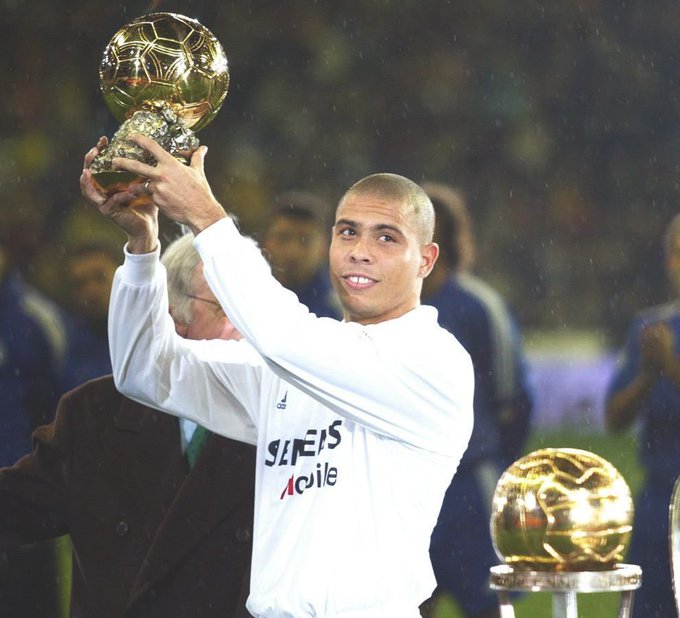
Ronaldo Luís Nazário de Lima, Brazil’s “Fenômeno,” was a whirlwind of speed and skill, winning Ballon d’Or titles in 1997 and 2002. Emerging at Cruzeiro, he tore through Europe at PSV, Barcelona, and Inter Milan, before thriving at Real Madrid. His 298 club goals in 434 games, including a stunning 1996–97 season at Barcelona with 47 goals, showcased his deadly finishing. Despite devastating knee injuries, he led Brazil to the 2002 World Cup, scoring twice in the final against Germany. His 1997 award, at just 21, marked a prodigy; 2002 celebrated his triumphant comeback. Ronaldo’s stepovers, bursts of pace, and audacious strikes, like his 1996 Compostela solo goal, mesmerized fans. His 62 goals in 98 Brazil caps underline his clutch nature. Ronaldo’s tale of resilience and flair, from Rio’s streets to packed Camp Nou, makes him a soccer legend, gripping readers with his rollercoaster career.
6. Franz Beckenbauer (2 Ballon d’Or Awards: 1972, 1976)
Franz Beckenbauer, Germany’s “Der Kaiser,” redefined defending, earning Ballon d’Or awards in 1972 and 1976. A Bayern Munich icon, he mastered the sweeper role, blending defensive steel with elegant playmaking. His leadership delivered three European Cups, four Bundesliga titles, and the 1974 World Cup, where he neutralized Johan Cruyff in the final. Beckenbauer’s 1972 European Championship win further showcased his class, with his calm passing and vision setting him apart. Scoring 60 goals in 427 Bayern games, he was no ordinary defender. His graceful style, like strolling out from the back to spark attacks, inspired a generation. As a manager, he won the 1990 World Cup, one of only three to do so as player and coach. Beckenbauer’s legacy, from Munich’s Allianz to global stages, marks him as a football icon, drawing fans with tales of innovation and trophy-laden glory.
5. Marco van Basten (3 Ballon d’Or Awards: 1988, 1989, 1992)
Marco van Basten, the Dutch master, dazzled with three Ballon d’Or wins in 1988, 1989, and 1992, his elegance unmatched. Starting at Ajax, he scored 128 goals in 133 games, winning three Eredivisie titles. At AC Milan, he claimed three Serie A crowns and two European Cups, his 125 goals in 201 games a testament to his lethal touch. His 1988 European Championship volley against the Soviet Union, a gravity-defying strike, remains iconic. Van Basten’s technical brilliance, from silky first touches to acrobatic finishes, made him a nightmare for defenders. Despite ankle injuries ending his career at 28, his 277 club goals endure. His hat-trick in the 1989 European Cup semi-final against Real Madrid showcased his clutch nature. Van Basten’s story, from Amsterdam’s roar to Milan’s San Siro, cements him as a soccer legend, captivating fans with his artistry and tragic early exit.
4. Johan Cruyff (3 Ballon d’Or Awards: 1971, 1973, 1974)
Johan Cruyff, the Dutch visionary, reshaped football, securing three Ballon d’Or titles in 1971, 1973, and 1974. At Ajax, he pioneered “Total Football,” scoring 190 goals in 240 games and winning eight Eredivisie titles and three European Cups. His 1973 move to Barcelona brought La Liga glory, his “Cruyff Turn” against Sweden in 1974 a defining trick. Cruyff’s intelligence, with pinpoint passes and spatial mastery, dazzled fans. His 33 goals in 48 Netherlands caps included leading them to the 1974 World Cup final. As a manager, he built Barcelona’s “Dream Team,” winning the 1992 European Cup. Cruyff’s philosophy, emphasizing fluid play, still shapes clubs like Barcelona. His legacy, from Ajax’s dominance to Camp Nou’s magic, marks him as a football icon, gripping readers with tales of innovation and flair that changed the sport.
3. Michel Platini (3 Ballon d’Or Awards: 1983, 1984, 1985)

Michel Platini, France’s midfield genius, ruled the 1980s, winning three straight Ballon d’Or awards from 1983 to 1985. Rising at Nancy, he became Juventus’s heartbeat, scoring 68 goals in 147 Serie A games and leading them to two European Cups and two league titles. His vision, silky passes, and deadly free-kicks were unrivaled, with 41 goals in 72 France caps. Platini’s nine-goal haul in the 1984 European Championship, including two hat-tricks, powered France to glory. His ability to dictate games, like his penalty in the 1985 European Cup final, made him a clutch performer. Later, as UEFA president, he influenced football’s growth. Platini’s story, from Turin’s packed stands to international triumphs, paints him as a soccer legend, drawing fans with his elegant play and trophy-laden career that shines in football history.
2. Cristiano Ronaldo (5 Ballon d’Or Awards: 2008, 2013, 2014, 2016, 2017)

Cristiano Ronaldo, Portugal’s relentless superstar, claimed five Ballon d’Or awards, his hunger for goals unmatched. From Sporting CP to Manchester United, he scored 145 goals in 346 games, winning three Premier League titles and the 2008 Champions League. At Real Madrid, he shattered records, netting 450 goals in 438 games, including four more Champions League crowns. His 800-plus career goals, powered by athleticism and precision, set him apart. Leading Portugal to the 2016 European Championship, his header against Wales was pivotal. Ronaldo’s work ethic, from perfecting free-kicks to outjumping defenders, made him a global icon. Now at Al Nassr, his scoring continues. His journey, from Madeira’s pitches to Bernabéu’s roar, grips fans with tales of record-breaking feats and clutch moments, cementing him among the greatest players ever.
1. Lionel Messi (8 Ballon d’Or Awards: 2009, 2010, 2011, 2012, 2015, 2019, 2021, 2023)
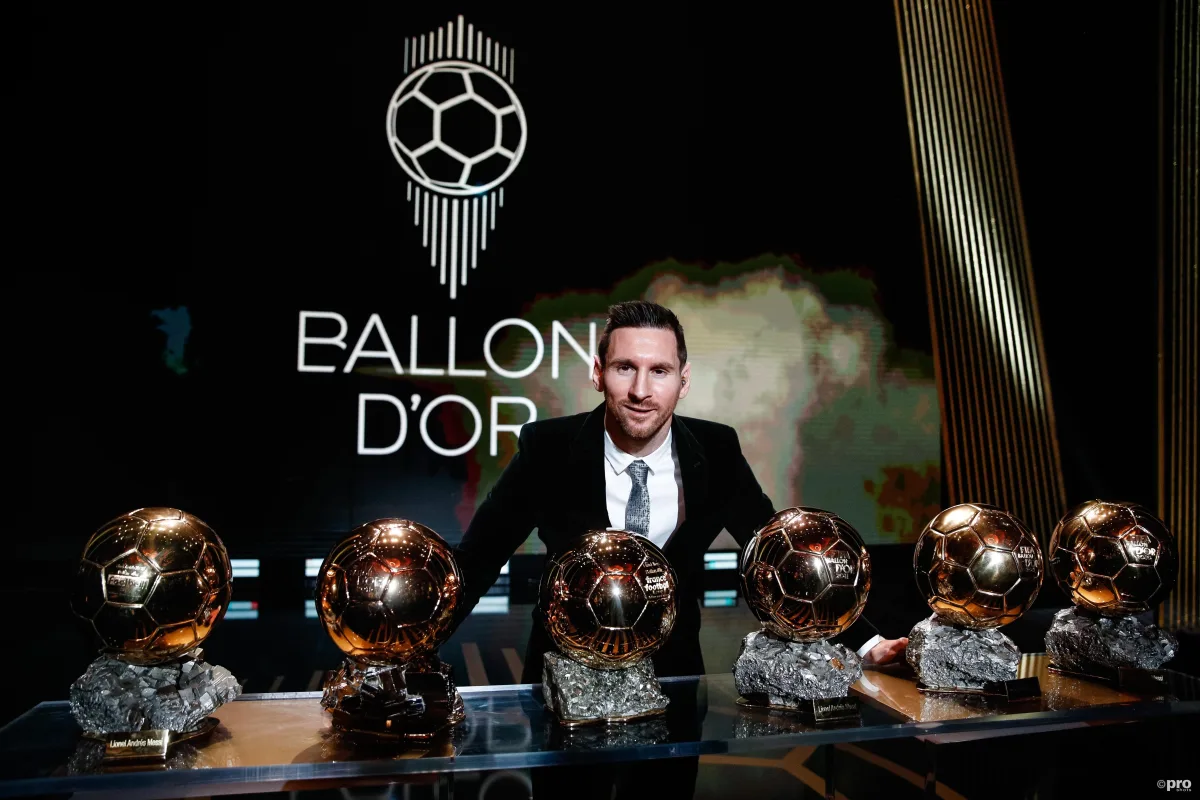
Lionel Messi, Argentina’s magical genius, holds a record eight Ballon d’Or awards, redefining football’s limits. At Barcelona, he scored 672 goals in 778 games, winning ten La Liga titles, four Champions League crowns, and seven Copa del Reys. His dribbling, weaving through defenses like a ghost, and pinpoint passing created countless iconic moments, like his solo goal against Getafe in 2007. Leading Argentina to the 2021 Copa América and 2022 World Cup, his five-goal World Cup haul silenced doubters. With over 800 career goals, Messi’s vision and humility shine. Now at Inter Miami, his magic persists, like his Leagues Cup heroics. His story, from Rosario’s dusty fields to global adoration, captivates with tales of impossible goals and trophy-laden glory, marking him as the ultimate soccer icon in football history.

